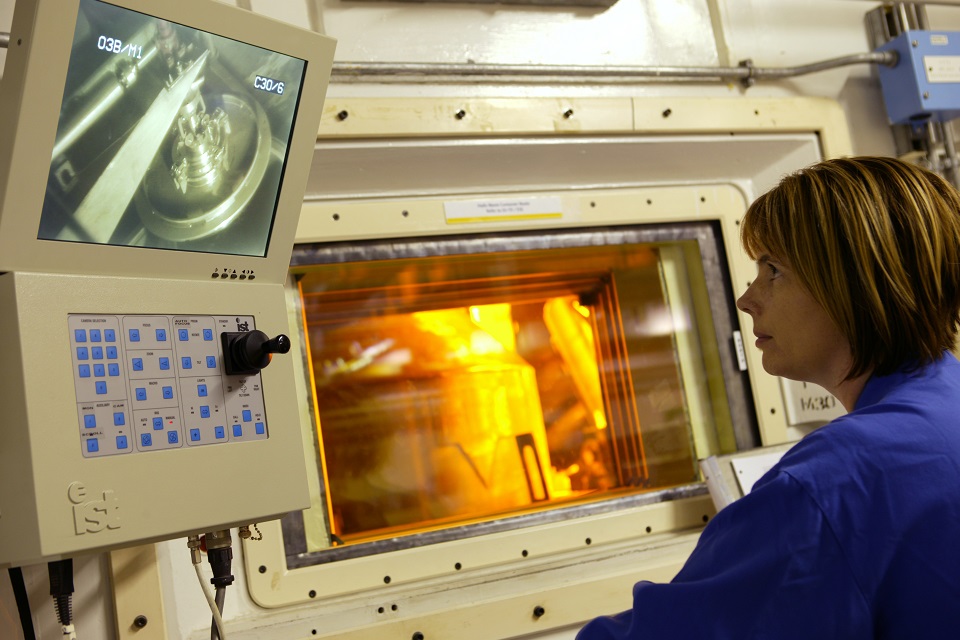Collection: Customer Notices: Low Level Waste Repository
Updated: Customer Notice 2018-012 added
Updated: Customer Notice 2018-012 added
The Marine Management Organisation (MMO) has published guidance on bass fishing in 2018 for fishermen in England. This follows publication of Council Regulation 2018/120 within the Official Journal of the European Union.
The MMO implements fisheries regulations set by the EU and the Department for Environment, Food and Rural Affairs. The European Commission has detemined that bass stocks remain under pressure despite the measures taken in previous years. It has placed further restrictions on the commercial and recreational fishing sectors in order to address this.
The regulations apply to all vessels. The MMO guidance sets out how these regulations will be implemented in the seas around England where it has a fisheries management and enforcement remit. Each UK devolved administration will consider whether it publishes guidance for the implementation of the regulations for the fishing vessels it licenses.
For recreational fishers, any bass caught during 2018 must be returned immediately. This applies if you are fishing from a boat or from the shore. The MMO will continue to work with the Inshore Fisheries Conservation Authorities in enabling and ensuring compliance with this control measure.
Throughout 2018 commercial bass fishing from shore is prohibited. In addition, the guidance sets out the areas where commercial fishermen must not catch, retain, transship or land bass. Commercial fishing for bass in any restricted area is prohibited during February and March 2018.
Measures to conserve sea bass stocks were implemented by the MMO in 2017 by issuing bass fishing authorisations to eligible vessels; those that could demonstrate bass fishing within a defined reference period. During early 2018 the MMO will issue authorisations to all vessel owners that received one in 2017. In addition we will be running a representation process for those individuals who did not submit and have their case considered in 2017. Complaints about bass authorisations will be considered by the MMO.
The MMO regularly monitors data on fishing activity, including bass catch levels, to ensure enforcement is targeted accordingly. It pursues reported breaches in the appropriate way, using a range of sanctions ranging from verbal or written advice through to prosecution in the most serious of cases.
Earlier in January 2018 the MMO advised fishermen that 2017 restrictions were to remain in place until this 2018 regulation was published.
Updated: Text updated
The bass control measures described implement european measures designed to manage fishing effort in order to help protect and improve bass stocks.
The control measures and restrictions set out in the 2018 EU fishing opportunities regulation will continue to apply in 2019 until such time they are replaced.
Bass management measures may be reviewed later in 2018 when bass population evidence is updated by the International Council for the Exploration of the Seas (ICES). This evidence is expected by the end of March 2018 and MMO will amend this guidance accordingly.
An array of robots controlled by super-smart auto-navigation systems are doing battle in an £8.5 million competition to develop new ways of tackling some of Sellafield’s most radioactive hotspots.
Last year, the Nuclear Decommissioning Authority (NDA) and fellow government agency Innovate UK launched a search for innovative technologies that could be combined into a single seamless process for use in facilities that will soon embark on a major decommissioning journey.
Working closely with Sellafield Ltd, who would use the technology, submissions to a competitive process were invited from all industrial sectors.
Five promising ideas have now made it through to the final stages after being whittled down from a shortlist of 15. The newly formed consortia are each set to receive up to £1.5 million to build prototype demonstrators for testing in a simulated radioactive environment.
Conventional approaches to working in high-hazard environments involve teams of workers, clad in protective air-fed suits, who would be restricted to working no more than a few hours at a time. The process is extremely time-consuming, costly and poses risks to the workers.

The goal of Sellafield and the NDA is to reduce risks to workers, increase productivity, deal efficiently with waste, reduce timescales and cut overall costs to the taxpayer: safer, faster, cheaper. This is complemented by the role of Innovate UK who are looking to drive productivity and growth in the UK through the support and implementation of innovation.
Announcing the projects, the NDA’s Head of Technology Melanie Brownridge said the response from suppliers and academic institutions had been so promising, that more funds were added to top up the original £3 million pot increasing it to £8.5 million:
We were all incredibly excited by the quality and diversity of the submissions, which came from established nuclear organisations as well as industries, such as space and defence sectors, working with us for the first time.
Such a fantastic response meant that we were able to secure additional funding from Innovate UK and the Government’s department of Business Energy and Industrial Strategy (BEIS) which will allow more of the ideas to be fully explored and also investigated for potential use in other hazardous environments. The projects demonstrate the full range of innovation – using existing ideas in an innovative way through to cutting-edge new technologies.
All the projects are being developed by collaborative consortia formed specifically for this competition. The participating organisations, almost 30 in total, include small businesses, large corporations and academic institutions.
The winning project – or projects – could be put to work at Sellafield’s Thermal Oxide Reprocessing Plant (THORP) and Magnox Reprocessing Plant, which are both due to close by 2020. After closure, scores of rooms, or ‘cells’, at the facilities must be cleaned out, with the waste safely treated for packing and storage.
Melanie added:
It’s a huge challenge. .
The new integrated system must establish what’s inside the cells, measure the radioactivity, access spaces that have been sealed for years, cut up the contents (including large vessels and many miles of pipework), segregate the waste, then remove it for treatment and safe storage. Radioactivity levels are extremely high, restricting workforce access, so the work must be carried out remotely.
A number of the technologies are tried and tested nuclear favourites; some are well established in other industries; others are brand new. One of the challenges will be to develop a smooth interaction between all the different component parts.
Industries that have been keen to step up to the challenge include computer gaming, fume extraction, sea-fishing, medical imaging, oil and gas as well as space and defence.
Many ideas include robots which range from large industrial giants to small ant-like devices that can work collectively and easily be replaced in the event of a break-down.
One of the auto-mapping systems was developed for use in missions to Mars and will be adapted to scan the interior of a radioactive cell.

Some projects will immerse operatives in a virtual world, where they will intuitively be able to control robots and equipment as if they were actually inside the cells.
Melanie added:
The NDA is continually seeking the best ways to encourage innovation and bring in new ideas from the supply chain and ensure everyone has an opportunity to contribute. Part of our mission is to support innovation and technology growth, with the aim of pushing forward the decommissioning of extremely complex nuclear challenges.
Derek Allen, Innovation Lead for Energy at Innovate UK, said:
We have been delighted by the response to this competition and the additional funding will enable us to support more innovative organisations with great ideas to make nuclear decommissioning cheaper, safer and faster.
This has the potential to open up significant business opportunities for UK organisations both nationally and globally.
This programme fully aligns with one of the Governments Industrial Strategy Challenge Fund priority areas: ‘Robotics and artificial intelligence in extreme environments’ which is looking to create a safer working world for people, improve productivity and support advances in industry and public services.
After the first series of trials, set to take place over the next 18 months, those with potential could progress to more rigorous trials in a radioactive environment. Approval from the nuclear regulators will be required before the integrated system can be deployed at Sellafield or other NDA sites.
Melanie added:
We’re hopeful that a number may be successful, and could be used in various different situations at our sites as well as in other hazardous scenarios, both here and overseas.
More on the projects and how they are developing will be released over the next 12 months including articles from each consortium.
The five successful projects are (lead contractor in bold):
Atkins, Cambrian Intelligence Ltd, Createc Ltd, Veolia (Oxford Technologies)
OC Robotics, Red Engineering Design Ltd, Structure Vision Ltd, React Engineering Ltd, UKEA, Race Ltd
Airbus Defence & Space Ltd, Damavan Imaging, Clicks & Links Ltd, TWI, Digital Concepts Engineering Ltd, IS Instruments Ltd, i3D Robotics Ltd, University of Lancaster, University of Salford, Kawasaki
Babcock Analytic Solutions, OC Robotics
Clicks & Links Ltd, Hu-Tech Ltd, Imitec Ltd, PaR Systems Ltd, UKEA RACE Ltd, University of Bristol, University of Manchester
Read more about the background in a blog by the NDA’s Melanie Brownridge
The decision taken by the Environment Agency to refuse a permit application for an A16 – physical treatment facility, Ealing, London.
This decision includes the refusal notice and decision document for: